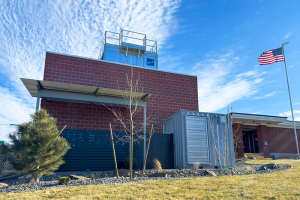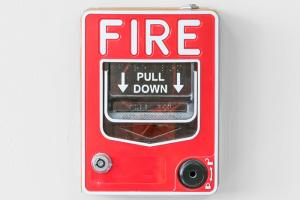ASHE requests help for critical ICC hearings
Professionals involved with the health care physical environment have for years experienced the problems with overlapping, conflicting and outdated codes and standards regulating hospitals.
Last year, ASHE and the International Code Council (ICC) partnered to form a committee to work together on proposals that would reduce code conflicts and free resources for patient care without reducing safety. Now, at the end of this month, the proposals created by the committee will have a shot at being adopted into the International Codes, known as the "I-Codes."
It's an exciting prospect for those responsible for keeping hospitals in compliance with numerous codes and standards. But the incorporation of these proposals won't just happen automatically. The ICC code development process is complicated and involves members from many different backgrounds, including those not regularly involved with the intricacies of the complex health care environment.
That's why it's so important for members of the health care industry to attend the ICC final action hearings in Portland, Ore., says ASHE Director of Codes and Standards Chad Beebe, AIA, SASHE. Having facility managers and others present at the hearings to discuss the benefits of various proposals and give real-world examples of why they are needed could be critical to passage of the proposals.
"Those responsible for the health care physical environment already know the benefits that these proposed changes would bring, but we need to explain the importance of these proposals to others involved with the ICC process," Beebe says.
More information about the specific health care proposals that will be discussed at the final action hearings Oct. 2228 is available on the ASHE website at www.ashe.org/resources/ashenews/2012/pdfs/icc_report_061812.pdf.
The proposals come from an ICC ad hoc committee on health care formed in partnership with ASHE. The committee's goals include:
- reducing conflicts caused by overlapping local and federal building and fire code requirements;
- easing confusion between multiple authorities responsible for code enforcement;
- promoting the consistent code evaluation of existing health care facilities and creating comprehensive building and fire codes for designing and building new hospitals;
- increasing the opportunity to apply science, research and other data in the code development process;
- considering cost-effective construction alternatives that do not reduce safety.
Adopting the proposals at the upcoming hearings would make big strides toward those goals and would send an encouraging signal to the ad hoc committee as it continues its work in the next code development cycle.
More information on the ICC final action hearings is available at iccsafe.org/conference. The ICC holds an annual conference at the same time as the final action hearings; while there is a fee for the conference, anyone can attend the final action hearings and there is no fee to do so. For more information on how to get involved with the upcoming hearings, contact Beebe at cbeebe.aha@gmail.com or 317-422-3824.
By Deanna Martin, senior communications specialist for ASHE.
INSIGHT
ASHE redesigns website and launches new blog
ASHE has redesigned its website to help keep members up-to-date about zissues affecting the health care physical environment. The ASHE website (www.ashe.org) now features a rotating carousel of news that members can use to quickly find information they need. The website also includes quick links to popular industry resources. Additionally, ASHE has launched a blog (www.ashe.org/blog) where members can read about new developments and post comments to discuss important issues.
ASHE urges members to comment on Guidelines
The Facility Guidelines Institute (FGI) is accepting public comments for the nationally accepted Guidelines for Design and Construction of Health Care Facilities, which outlines minimum recommendations for health facility new construction and renovation. Among the changes proposed for the 2014 edition of the Guidelines are several new risk assessments, updated commissioning guidance, staff nap rooms in hospitals, and medication safety zones. The public comment period for the FGI Guidelines runs through Nov. 22 and ASHE is urging its members to take part. For more information, visit the FGI website at www.fgiguidelines.org.




